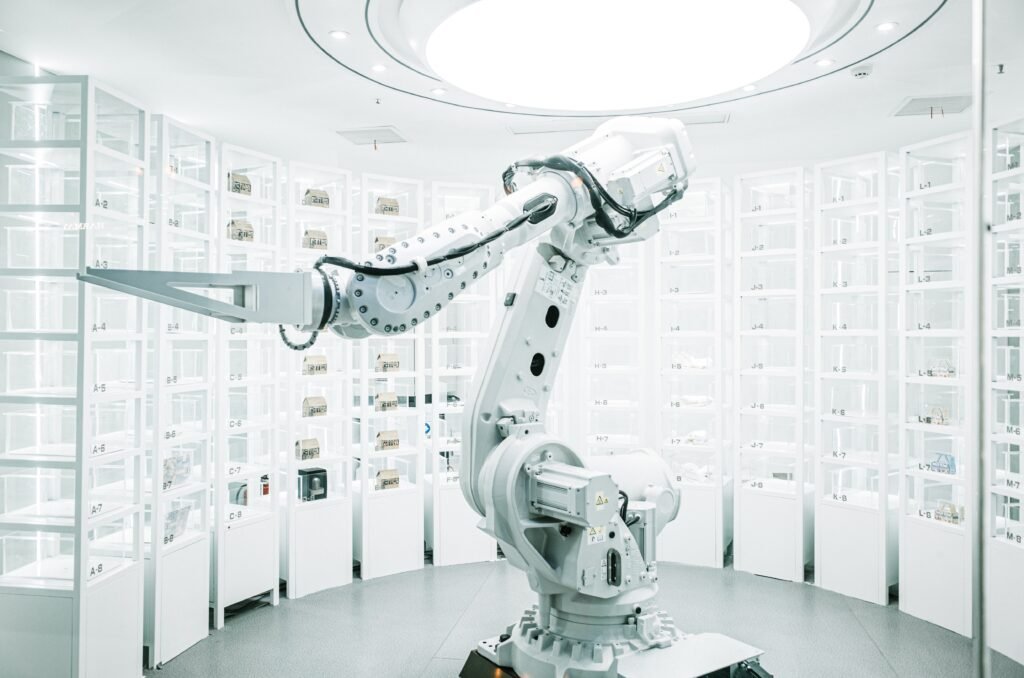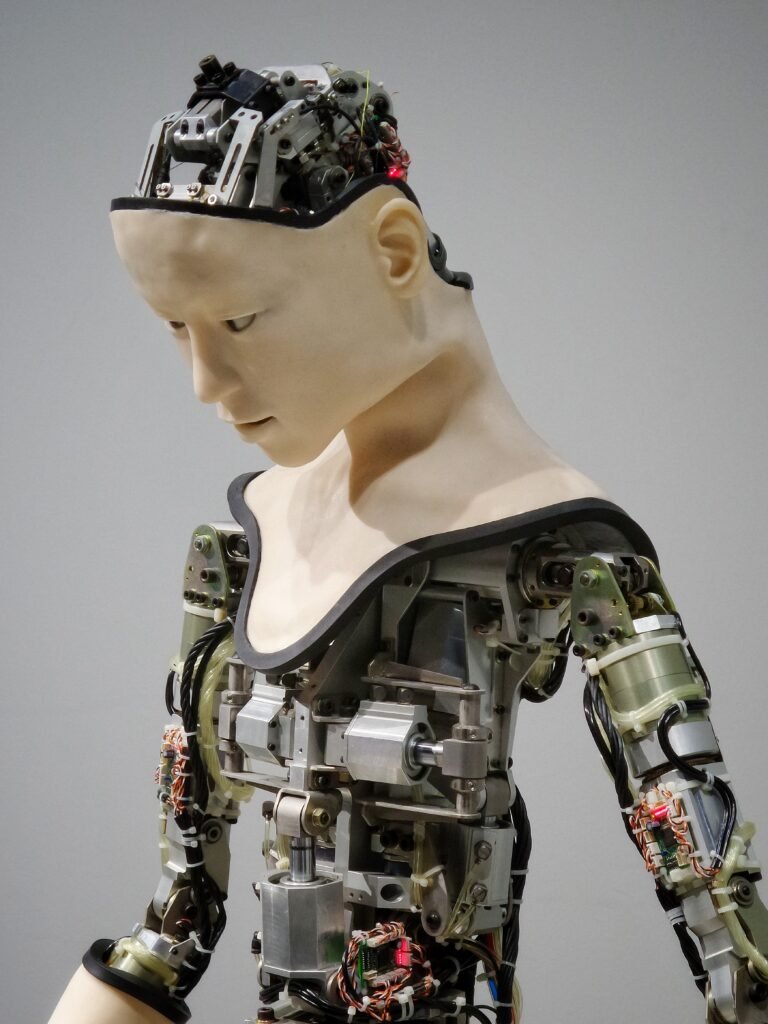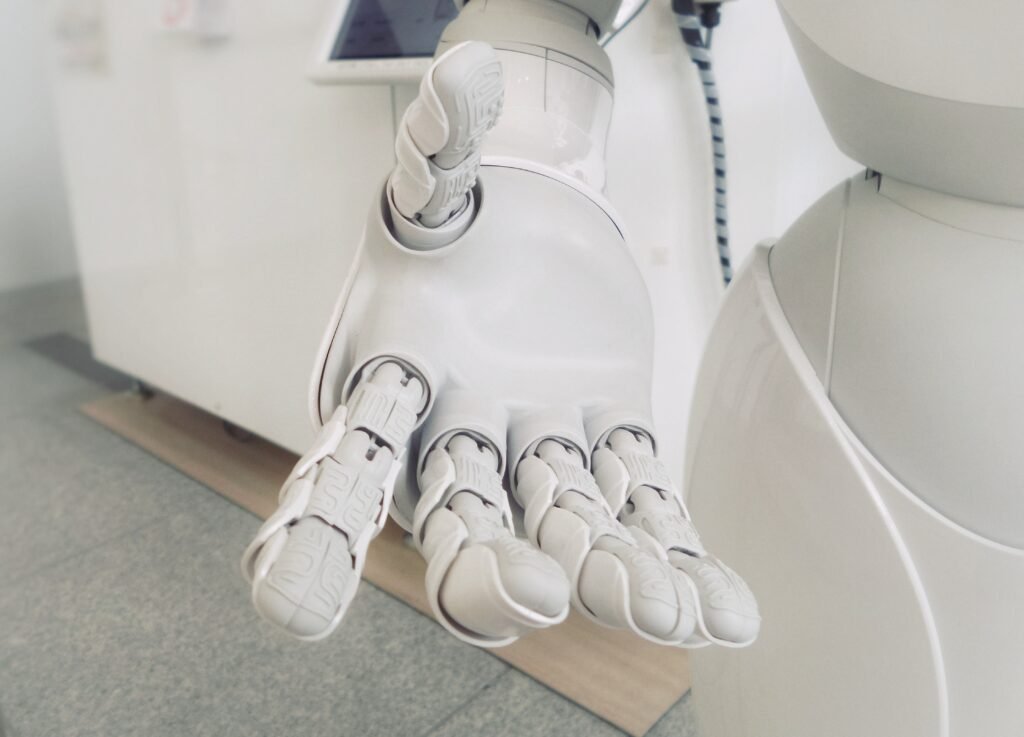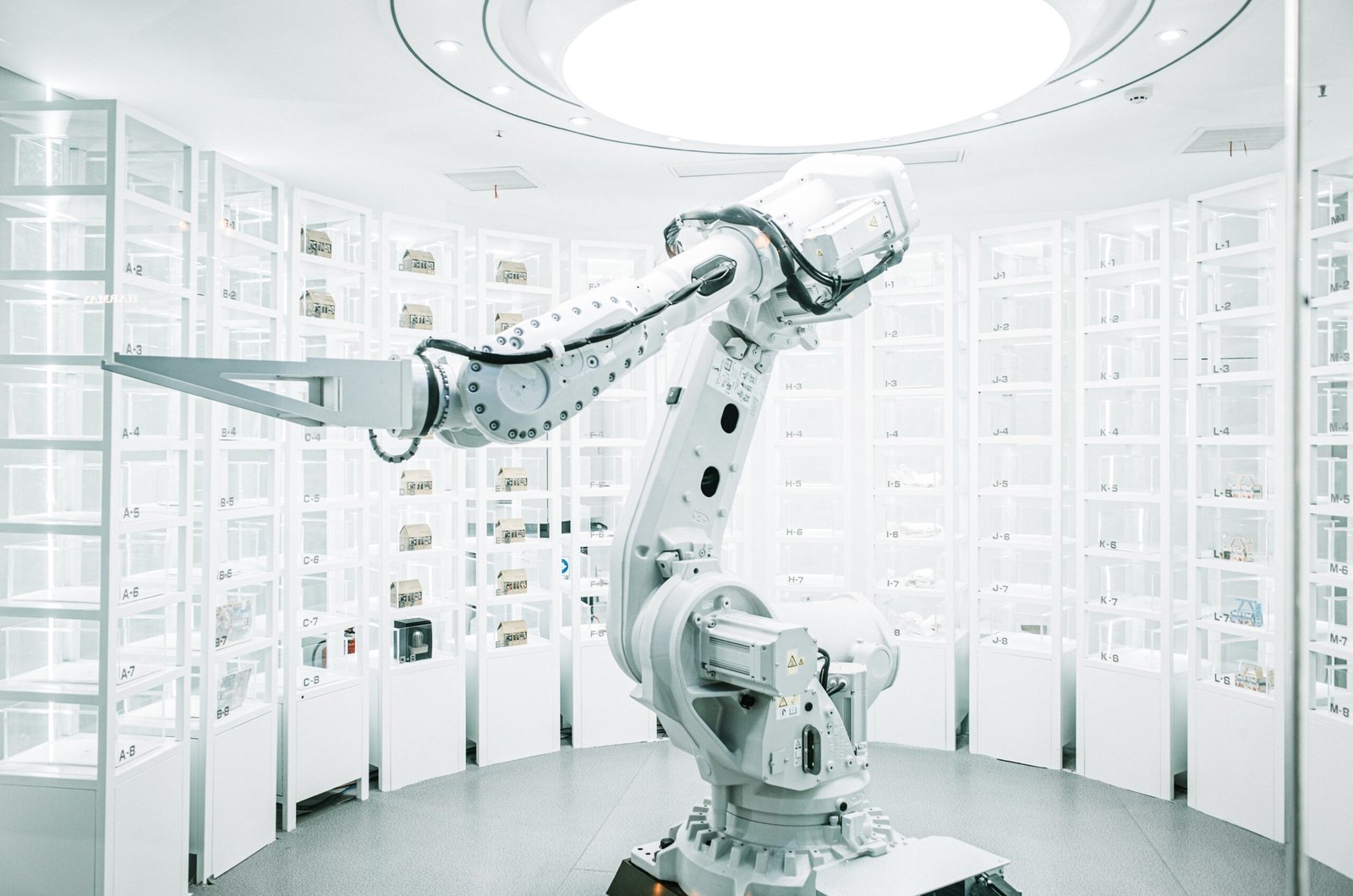Artificial Intelligence (AI) is an advanced technology that aims to replicate human intelligence in computers. It encompasses a wide range of algorithms and techniques that enable machines to learn, reason, and perform tasks traditionally done by humans. From speech recognition to decision-making, AI is revolutionizing industries across the globe. In this article, we will explore the fascinating world of AI, its impact on various sectors, and its potential for shaping the future. So, get ready to embark on an exciting journey into the realm of artificial intelligence!

Definition of Artificial Intelligence
Understanding the Concept of Artificial Intelligence
Artificial Intelligence (AI) is the branch of computer science that deals with the development of intelligent machines that have the ability to perform tasks that would typically require human intelligence. These tasks include speech recognition, problem-solving, learning, decision making, and more. AI aims to create machines that can mimic human cognitive abilities and can adapt and learn from their experiences.
History and Evolution of Artificial Intelligence
The concept of Artificial Intelligence dates back to ancient times when Greek myths and legends mentioned the creation of mechanical beings with human-like characteristics. In modern times, the field of AI was officially established in the 1950s when computer scientists began to explore the idea of creating intelligent machines. Since then, AI has evolved significantly, with breakthroughs in machine learning, neural networks, and deep learning algorithms. Today, AI is shaping various industries and transforming the way we live and work.
Why Artificial Intelligence is Important in Computer Science
Artificial Intelligence plays a crucial role in computer science as it allows computers to perform complex tasks that were once thought to be exclusively within the realm of human intelligence. By enabling machines to process, analyze, and interpret vast amounts of data, AI opens up new possibilities for automation, optimization, and decision-making. AI also enhances the capabilities of computer systems, enabling them to learn from experiences and make intelligent choices, ultimately improving efficiency and productivity.
Types of Artificial Intelligence
Narrow AI
Narrow AI, also known as Weak AI, refers to AI systems that are designed to perform a specific task or a limited set of tasks. These systems excel in a narrow domain and are built to accomplish well-defined objectives. Examples of narrow AI include voice assistants like Siri and Alexa, recommendation systems used in e-commerce, and computer vision algorithms used in facial recognition. Narrow AI is focused on solving specific problems and lacks the ability to exhibit generalized intelligence across different domains.
General AI
General AI, often referred to as Strong AI or Human-level AI, represents the concept of machines that possess human-like intelligence and have the ability to understand, learn, and apply knowledge to any intellectual tasks. General AI aims to replicate the entire range of human cognitive abilities, including reasoning, problem-solving, and emotional intelligence. While still in the realm of theoretical research, General AI has the potential to revolutionize various industries and greatly impact society as a whole.
Superintelligent AI
Superintelligent AI refers to AI systems that surpass human intelligence in virtually every aspect, including creativity, problem-solving, and decision-making. This level of AI is hypothetical but raises ethical questions and concerns. Superintelligent AI possesses capabilities that could potentially outpace human control and have unintended consequences. It is important to ensure that the development of such AI is guided by strong ethical principles and comprehensive safety measures.
Applications of Artificial Intelligence
Natural Language Processing (NLP)
Natural Language Processing is a branch of AI that focuses on the interaction between machines and human language. NLP enables computers to understand, interpret, and generate human language in a way that is both meaningful and contextually appropriate. NLP has numerous applications, including speech recognition, sentiment analysis, language translation, and chatbots.
Machine Learning
Machine Learning is an application of AI that empowers systems to automatically learn from data and improve their performance without being explicitly programmed. It involves algorithms that allow computers to identify patterns, make predictions, and uncover insights from large datasets. Machine Learning is used in various domains, ranging from predictive analytics in finance to medical diagnosis, fraud detection, and recommendation systems.
Computer Vision
Computer Vision is an AI application focused on enabling computers to understand and interpret visual information, such as images and videos. By leveraging techniques like object recognition, image classification, and image segmentation, computer vision systems can analyze and extract meaningful information from visual data. This has numerous applications, including facial recognition, autonomous vehicles, surveillance, and medical imaging.
Robotics
Robotics is an interdisciplinary field that combines AI, engineering, and computer science to develop intelligent machines capable of performing physical tasks in a dynamic environment. AI plays a crucial role in robotics, enabling robots to sense, perceive, and interact with their surroundings. Applications of robotic AI include industrial automation, assistive robotics in healthcare, exploration in space and underwater, and household automation.
Autonomous Vehicles
Autonomous Vehicles, also known as self-driving cars, rely on AI technology to navigate and operate without human intervention. AI algorithms process sensor data from cameras, radars, and lidars to make real-time decisions regarding speed, direction, and navigation. Autonomous vehicles have the potential to revolutionize transportation by reducing accidents, improving traffic flow, and increasing accessibility.
Virtual Assistants
Virtual Assistants, such as Siri, Alexa, and Google Assistant, are AI-powered applications that provide personalized assistance through voice commands or text interactions. These assistants leverage natural language processing, machine learning, and voice recognition technologies to understand and respond to user queries, perform tasks, and provide relevant information. Virtual assistants have become increasingly popular in homes and workplaces, simplifying daily tasks and offering convenience.
How Artificial Intelligence Works
Data Collection and Preparation
Artificial Intelligence systems rely on vast amounts of data to learn and make informed decisions. Data collection involves gathering relevant information from various sources, such as databases, websites, or sensors. Once collected, the data needs to be organized, cleaned, and prepared for analysis. This involves removing any inconsistencies or errors, transforming the data into a suitable format, and ensuring its quality and completeness.
Machine Learning Algorithms
Machine Learning algorithms form the foundation of AI systems. These algorithms analyze the prepared data to identify patterns or relationships and derive meaningful insights. There are various types of machine learning algorithms, including supervised learning, unsupervised learning, and reinforcement learning. Each algorithm has its own purpose and method of learning, whether it is through labeled data, clustering, or trial and error.
Training and Fine-tuning
In the training phase, the AI system is exposed to the labeled or pre-processed data, allowing it to learn from the examples and make predictions or classifications. The system is trained to optimize its performance based on defined objectives or criteria. Fine-tuning involves refining the AI system’s parameters or models to improve its accuracy and reliability. This iterative process helps the system adapt and improve over time.
Inference and Decision Making
Once trained, the AI system is ready to make inferences and decisions based on new input or situations. It applies its learned knowledge and algorithms to process the input data and generate outputs or actions. The system’s ability to make accurate predictions, classify information, or recommend actions is crucial in various AI applications, such as personalization, fraud detection, or autonomous decision-making.

Challenges and Limitations of Artificial Intelligence
Ethical Considerations
With the growing influence of AI in society, ethical considerations become increasingly important. The development and deployment of AI systems should adhere to ethical principles, ensuring fairness, transparency, and accountability. Questions arise regarding potential biases, privacy violations, and the unintended consequences of AI technologies. It is essential to address these ethical concerns to mitigate any negative impacts AI may have.
Safety and Trustworthiness
Safety and trustworthiness are critical aspects of AI development. AI systems should be designed with fail-safe mechanisms to prevent unintended harm or accidents. The reliability and robustness of AI algorithms and models are crucial to ensure accurate and trustworthy outcomes. Continuous monitoring, evaluation, and auditing of AI systems are necessary to maintain safety standards and build trust among users and stakeholders.
Lack of Common Sense
One of the major challenges in AI development is instilling common sense reasoning into machines. While AI systems excel in specific tasks, they often lack the broader context and understanding that humans possess. Teaching AI the nuances of human language, understanding causality, and comprehending complex real-world scenarios is a significant challenge. The lack of common sense reasoning can lead to erroneous or unexpected behavior in AI systems.
Job Displacement
The rise of AI automation raises concerns about the impact on employment. As AI systems become capable of performing tasks traditionally done by humans, there is a potential for job displacement. However, it is essential to recognize that AI also creates new job opportunities and complements human capabilities. The proper integration of AI into the workforce involves re-skilling and upskilling the workforce to adapt to the changing job landscape.
Ethical Issues in Artificial Intelligence
Bias and Fairness
Bias in AI systems arises when algorithms or models exhibit systemic favoritism or discrimination towards certain groups. This can occur due to biased training datasets, biased objectives, or unintentional biases introduced during the development process. Ensuring fairness and reducing bias in AI systems is essential to avoid perpetuating societal inequalities and ensure equal treatment for all individuals.
Transparency and Explainability
AI systems often function as black boxes, making it difficult to understand their decision-making processes. The lack of explainability and transparency can raise concerns about accountability, ethics, and trustworthiness. To address this, efforts are being made to develop techniques that provide insights into the reasoning behind AI system decisions, enabling users to understand and evaluate their behavior.
Privacy and Security
AI systems rely on vast amounts of personal data to learn and make informed decisions. This raises privacy concerns, as the use of personal information must be handled responsibly and in compliance with data protection regulations. Additionally, the security of AI systems must be ensured to prevent unauthorized access, data breaches, or malicious attacks that could compromise the integrity of the AI system and the data it processes.
Autonomous Weapons
The development of AI-powered autonomous weapons raises ethical concerns regarding their use in armed conflicts. These weapons possess the ability to make decisions and take actions independently, potentially raising issues of accountability and adherence to international humanitarian laws. It is crucial to establish ethical guidelines and regulations to govern the development and deployment of autonomous weapons, ensuring they are used responsibly and ethically.

Impact of Artificial Intelligence on Society
Automation and Efficiency
AI has the potential to automate repetitive or time-consuming tasks, freeing up human resources for more complex and creative endeavors. Automation powered by AI can enhance efficiency, accuracy, and productivity across various industries. From manufacturing to customer service, AI-enabled automation streamlines processes, reduces costs, and improves overall performance.
Job Market Transformations
The integration of AI into the workforce is expected to transform the job market. While some jobs may be replaced by AI automation, new job opportunities will also emerge in fields like AI development, data analysis, and AI system monitoring. The job market will require individuals with skills in AI, data science, and problem-solving, necessitating continuous learning and adaptation.
Healthcare Advancements
AI has the potential to revolutionize healthcare by enabling accurate diagnoses, personalized treatments, and efficient patient care. AI algorithms can analyze medical data to identify patterns, predict disease progression, and recommend treatment plans. AI-powered medical imaging systems enhance the accuracy and speed of diagnoses, leading to improved healthcare outcomes.
Economic Implications
The widespread adoption of AI technologies can have significant economic implications. AI-driven innovations have the potential to drive economic growth, increase productivity, and create new business opportunities. However, there may also be challenges, such as job displacement, income inequality, and the concentration of wealth in AI-driven industries. It is crucial to develop strategies that ensure the equitable distribution of AI’s economic benefits.
Future Development of Artificial Intelligence
Advancements in Deep Learning
Deep Learning, a subset of Machine Learning, is making significant strides in AI research and development. Future advancements in Deep Learning are expected to enhance the performance and capabilities of AI systems. Techniques like deep neural networks, reinforcement learning, and generative adversarial networks will continue to evolve, enabling AI systems to achieve higher levels of complexity and sophistication.
Human-level AI
The pursuit of Human-level AI, also known as Artificial General Intelligence, remains an ambitious goal in AI research. Human-level AI refers to machines that possess the same level of intelligence as humans, with the ability to understand, learn, and adapt to any intellectual task. While achieving Human-level AI is extremely challenging, researchers continue to explore advancements in cognitive architectures and AI models that bring us closer to this goal.
Integration with IoT and Big Data
The integration of AI with the Internet of Things (IoT) and Big Data is expected to drive new advancements and applications of AI. The combination of AI, IoT devices, and vast amounts of data collected from sensors and connected devices will enable more comprehensive and intelligent decision-making. AI algorithms will analyze real-time data from various sources to generate insights, optimize processes, and improve overall performance.
Ethics and Regulations
As AI continues to advance, the importance of ethical guidelines and regulations becomes paramount. Efforts are underway to establish ethical frameworks and guidelines for the development, deployment, and use of AI technologies. Regulations are necessary to address concerns related to bias, privacy, safety, and accountability. Ethical considerations must be integrated into AI system development to ensure that AI technology benefits society while minimizing potential risks.

Key Players in Artificial Intelligence
Tech Companies
Several major tech companies are driving advancements in AI. Companies like Google, Microsoft, Amazon, and IBM are heavily invested in AI research and development. These companies are responsible for developing AI-powered products and services, such as virtual assistants, smart home devices, and cloud-based AI platforms. Their influence and resources contribute significantly to the progress of AI technology.
Academic Institutions
Academic institutions play a vital role in AI research and innovation. Universities and research centers worldwide conduct research in various AI disciplines, contributing to advancements in algorithms, models, and AI theory. These institutions also educate and train the next generation of AI experts, fostering a continuous influx of talent into the field.
Government Initiatives
Governments around the world have recognized the importance of AI and have launched initiatives to promote its development. Countries like the United States, China, Canada, and the European Union have invested in AI research, development, and infrastructure. Governments are also establishing AI policies, forming expert panels, and investing in AI education to ensure their country’s competitiveness in AI innovation.
Conclusion
Artificial Intelligence has become an integral part of computer science, revolutionizing how machines process, analyze, and interpret information. From narrow AI to the far-reaching possibilities of General and Superintelligent AI, the field is continuously evolving, impacting various industries and society as a whole. AI applications, such as Natural Language Processing, Machine Learning, Computer Vision, Robotics, Autonomous Vehicles, and Virtual Assistants, offer countless opportunities for automation, efficiency, and advancements in fields like healthcare and economics. However, challenges and ethical considerations, such as bias, transparency, and job displacement, must be addressed to ensure responsible and beneficial AI deployment. The future development of AI will be driven by advancements in Deep Learning, pursuit of Human-level AI, integration with IoT and Big Data, and the establishment of ethical guidelines and regulations. With key players in the industry, academic research, and government initiatives, the future of AI holds immense potential to improve our lives and transform our world.







